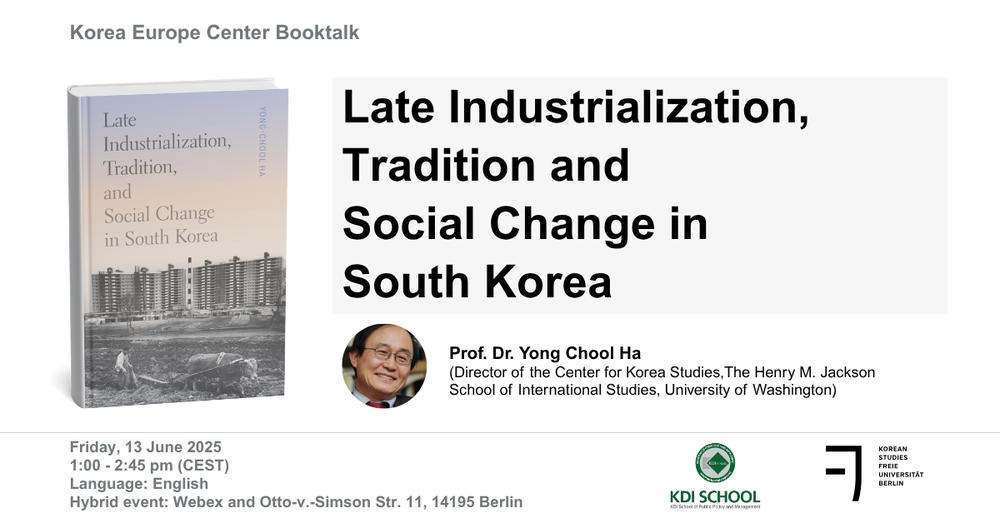Late Industrialization, Tradition and Social Change in South Korea
Prof. Dr. Yong-Chool Ha (Director of the Center for Korea Studies,The Henry M. Jackson School of International Studies, University of Washington)
Book abstract:
This book starts with a paradox in Korea’s economic development: an ultra-modern industrial economy has been achieved, yet traditional networks of obligation and solidarity, such as blood, school, and regional ties have persisted, and even become more deeply reinforced, profoundly affecting the fundamental aspects of Korean politics and socio-economic relations. This book contends that this paradox is not accidental, and that the course of Korea’s late economic development shaped and entrenched these “primordial” ties into Korea’s politics, society, and economy. Thus, this book unpacks an apparent institutional irony of late industrialization as the key to understand social change, i.e., that late industrialization incorporates traditional institutions and values to facilitate economic development.
About the lecturer
Yong chool Ha is Korea Foundation professor at the Jackson School of International Studies, University of Washington and received his Ph D at University of California, Berkeley. Before he moved to University of Washington in January 2008, professor Ha taught at the Department of International Relations, Seoul National University where he served as chairman of the department, associate dean of the College of Social Sciences and chairman of the Unification Forum. He also served as president of the Korean Association of International Studies. He has written and published extensively on Korean domestic and international relations, North Korean politics and Soviet and Russian politics in English, Russian and Korean journals, such as Comparative Political Studies, Asian Survey, and Cambridge Review of International Relations. He led the trans-Siberian railroad research trip for the first time in Korea in 2000. His research interests are community building and international relations theories, late industrialization and IR. Changing elite-mass relations in late industrializing countries. Currently he is finishing a book on “late Industrialization, the State and Social Change in a comparative perspective.
His recent publications include: The Dynamics of Strong State (SNU Press, 2006), Late Industrialization, the State and Tradition: the Emergence of Neofamilism in Korea(2007, CPS), Colonial Social Change (ed.)(U. of Washington Press, 2013), The International Impact of the Colonial Rule in Korea (UW Press, 2019), and Late Industrialization, Tradition and Social Change in South Korea(UW Press, 2024).
Hybrid event!
Please register in advance for online participation.
Registration: https://fu-berlin.webex.com/weblink/register/rb6874b3cf5b8dc6f800ee97c1ed23004
Zeit & Ort
13.06.2025 | 13:00 s.t. - 14:45
Hybrid
Online: Webex
Offline: Otto-v.-Simson-Str. 11
14195 Berlin
Weitere Informationen
Gwendolyn Domning: g.domning[at]fu-berlin.de

